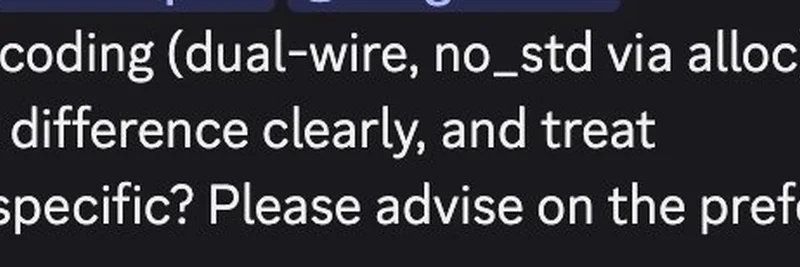If you're diving into the world of Solana and wondering where to level up your skills, forget the standard bootcamps and tutorials. A recent tweet from @japarjam highlights just how next-level the conversations are getting in the Solana dev community, specifically within the Turbine program.
The tweet shares a snippet from the "Pinocchian chat," where devs are casually tossing around ideas about native bincode decoding, ABI compatibility, and treating certain elements as Pinocchio-specific. For those not in the know, bincode is a fast binary serialization format used in Rust, which is Solana's primary programming language. ABI stands for Application Binary Interface, basically the rules for how software components interact at the binary level. And Pinocchio? That's a reference to a zk-SNARK protocol, a zero-knowledge proof system that's crucial for privacy and scalability in blockchain apps.
@japarjam points out that this kind of banter is what sets @solanaturbine apart. It's not just learning the basics; it's like pursuing a Master's or PhD in blockchain and Solana tech. Turbine, known as the premiere developer institute on Solana, acts as an innovation lab, research hub, and talent source. If you're building meme tokens or any dApp on Solana, tapping into this community could give you the edge in implementing advanced features like zero-knowledge proofs to make your projects more secure and efficient.
Why This Matters for Meme Token Creators
Meme tokens on Solana thrive on speed, low costs, and community hype, but integrating cutting-edge tech can take them to the next level. Discussions like the one in the tweet touch on drop-in compatibility for tools, which could mean easier integration of zk tech into your token launches or NFT projects. Imagine creating a meme coin with built-in privacy features – that's the kind of innovation Turbine's chats are fostering.
Breaking Down the Tech Talk
Let's unpack that chat snippet a bit:
Native bincode decoding (dual-wire, no_std via alloc): This is about making serialization work in resource-constrained environments, like on-chain programs where you can't use the standard library (no_std). Alloc allows dynamic memory allocation without std.
Drop-in compatibility ABI: Ensuring that new implementations can replace old ones seamlessly without breaking existing code.
Document the difference clearly: Always key in open-source projects to avoid confusion.
Treat CU as Pinocchio-specific: CU might refer to Compute Units in Solana, but here it's likely something in the Pinocchio context. Advising on the preferred direction shows the collaborative spirit.
This isn't beginner stuff – it's the real deal for devs pushing Solana's boundaries.
Join the Conversation
If you're inspired, check out Turbine's official site or follow @solanaturbine on X. For more insights on how these advancements impact the meme token scene, stick with Meme Insider. We're here to keep you updated on the latest in blockchain tech that powers your favorite memes.



